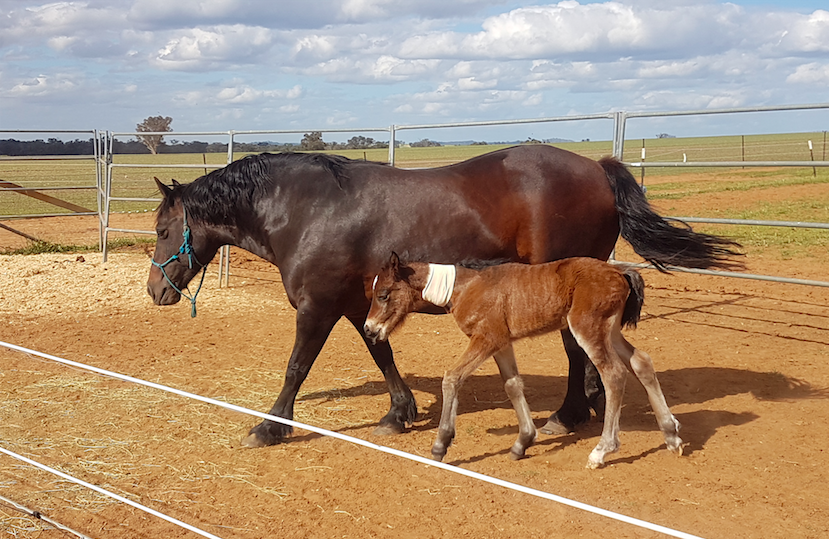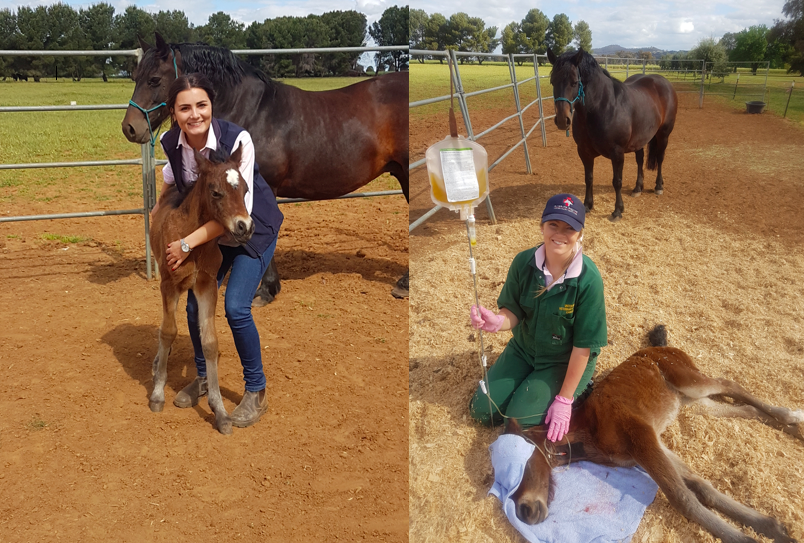
With Tori’s ballooning belly and developing udder indicating her long awaited foal was not far off arrival her owner was in close contact with the team here at REVS. Late night texts warning us that Tori was running milk were not long followed by “It’s here!!!” – the excitement was palpable! All reports indicated Tori and her new filly foal were doing well, until her owner called early the following morning alerting us that Tori hadn't yet passed her foetal membranes.
Retained foetal membranes (RFM), or retained placenta, is a common and very serious post partum problem in the mare. Foetal membranes are normally passed within 3 hours after foaling. When a mare fails to pass all or part of the placenta in a timely fashion her health can be endangered in several ways. By hanging out into the environment, the half expelled placenta can provide a way for contaminants and bacteria to enter the uterus. After 6-8 hours the retained placental tissue begins to break down, or autolyze, becoming putrified. Bacteria can multiply rapidly, resulting in an inflamed and infected uterus. Bacteria and toxins may enter the blood circulation causing fever, toxaemia, and potentially resulting in devastating laminitis.
One of our vets promptly visited Tori that morning. She was examined in our PortaSafeStocks and the retained membranes carefully and patiently removed by manual traction along with uterine lavage. Tori’s uterus was flushed to facilitate removal of as much of the autolyzed placental tissue as possible, thereby reducing any bacterial or toxin load. Fortunately Tori was not yet showing signs of fever, toxaemia or laminitis. She was placed on a course of broad-spectrum antibiotics and anti-inflammatories. Tori’s filly foal “Tess” was also examined and was found to be apparently fit and healthy, although a blood test performed once she reached 24 hours of age showed her IgG levels were below adequate.
Tess had a failure of passive transfer (FPT) meaning she had not received adequate quality or quantity of colostrum from Tori. This is a common problem we see in neonatal foals. Tess’ immature immune system could be inadequately prepared to defend Tess against pathogens and disease in the first few months of life. Because the golden 12-24 hour window for colostrum absorption had passed, the best option was to administer Tess an IV transfusion of commercial plasma rich in immunoglobulins.


